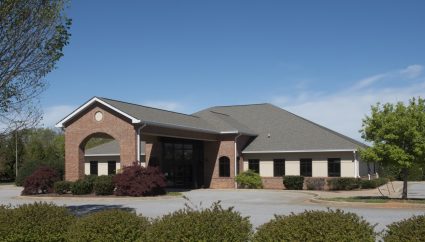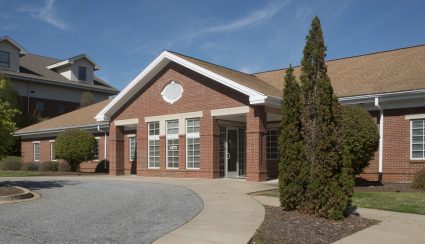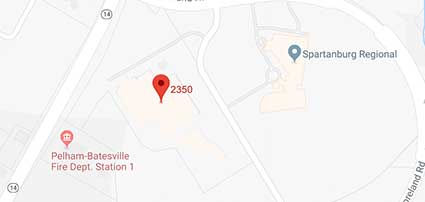Achilles Tendon Rupture
What is it and what are my treatment options?
Achilles Tendon Tear Treatment in Spartanburg, Duncan, and Greenville, SC
The Achilles tendon is a large tendon that attaches the calf muscle to the heel. Achilles tendon injuries are classified as strains, partial or complete tears. Achilles tendonitis is Achilles tendon inflammation, usually from overuse. Patients who experience Achilles tendon injury symptoms should make an appointment with a Carolina Orthopaedic and Neurosurgical Associates (CONA) foot and ankle specialist as soon as possible. Delaying treatment may make the injury and symptoms worse.
What is an Achilles Tendon Rupture?
A ruptured Achilles tendon is an injury that happens in the back of your lower leg. It usually happens to people who play sports, but anyone can suffer from this injury.
The Achilles tendon is a strong, fibrous cord that connects the muscles in the back of your leg to the heel bone. If you overstretch your Achilles tendon, it can tear (rupture) all the way or partially.
Achilles Tendon Rupture Symptoms
With an Achilles tendon tear, it is possible to have no signs or symptoms, but most people have:
- Bruising
- Difficulty pointing the foot down
- Pain
- Swelling
- Tenderness
- It feels like someone kicked you in the calf
- Pain that could be very bad and swelling around the heel
- The injured leg can’t bend down or “push off” the ground when walking
- You cannot stand on the toes of the injured leg
- When the incident occurs, there is a popping or snapping sound
What Causes an Achilles Tendon to Rupture?
Athletes and active individuals, especially those who constantly run and jump, make up the patient population that experiences the most Achilles tendon injuries. Heavy lifting and falls are also common causes.
When you walk, your Achilles tendon lets you point your foot down, get up on your toes, and push off your foot. Almost every time you walk or move your foot, you depend on it.
Rupture usually happens in the part of the tendon that is about 2 1/2 inches from where it connects to the heel bone. This part might be more likely to break because blood flow isn’t good, which can also make it take longer to heal.
Ruptures often happen when your Achilles tendon is put under a lot of quick stress. Some common examples are:
- Playing sports more often and with more intensity, especially jumping sports
- Falling from up high
- Stepping into a hole
Achilles Tendon Rupture Treatment
Treatment for a torn Achilles tendon often depends on how old you are, how active you are, and how bad the injury is. In general, younger, more energetic people, especially athletes, choose surgery to fix a completely torn Achilles tendon, while older people are more likely to choose a treatment that doesn’t involve surgery.
Nonsurgical treatments may include:
- Activity modification
- Immobilization in a cast, splint, or boot
- Using crutches to rest the tendon
- Putting ice on the injury
- Taking over-the-counter medications like ibuprofen
- Keeping the ankle from moving for the first few weeks, usually with a cast or a walking boot with heel wedges
Surgical treatment usually involves an incision that is made in the back of your lower leg, and the torn tendon is stitched back together. Surgery may be recommended to treat some partial tears and complete tears. An Achilles tendon repair repairs the torn tendon.
Depending on how bad the torn tissue is, other tendons might be added to the repair to make it stronger.
How to Prevent Achilles Tendon Rupture
Follow these tips to lower your chances of injuring your Achilles tendon:
- Stretch and build up the muscles in your calves
- Change your workouts
- Carefully choose the surface you run on
- Slowly increase workout intensity
Achilles Tendon Tear Diagnosis
A CONA foot and ankle specialist will carefully listen to the patient’s symptoms and obtain a medical/injury history. A physical examination of the Achilles is performed. X-rays and possibly an MRI are taken. The Achilles tendon injury is diagnosed and its severity is determined, and an appropriate treatment plan is prescribed to treat the injury and quickly reduce symptoms.
Achilles Tendon Rupture Care in South Carolina
Our specialists here at CONA are here to help you get back to doing the activities you love. If you have suffered an Achilles tendon rupture, request an appointment at any of our locations convenient to you, or walk in at our Orthopedic Urgent Care for immediate help.
Make an Appointment
with A Foot & Ankle Specialist
Please do not let Achilles tendon injury symptoms linger on. Make an appointment with a Board-Certified and Fellowship-Trained CONA foot and ankle specialist so you can receive an accurate diagnosis and effective treatment plan.
what Our Patients Are Saying
Read Their Success Stories
I am happy with this practice all my questions are answered within 24 hours. Dr. Hoenig is great, his bedside manner is wonderful, he is very thorough, and makes personal calls after surgery to check on patients. I would definitely recommend to family and friends!
This has been one of my most positive experiences at a Dr's office. I was treated with respect and love. They made my surgical procedure less stressful and very positive.
These are the best group of doctors that myself & my family have ever been treated by in this field of medicine. They listen to how you feel instead of telling you how you feel. Thank you all for your caring & kindness.
4 Convenient Locations

NORTH GROVE CAMPUS
1330 Boiling Springs Road
Suite 1600
Spartanburg, SC 29303
Hours: 8:30 a.m. to 5:00 p.m.

DUNCAN OFFICE
115 Deacon Tiller Ct.
Duncan, SC 29334
Hours: 8:30 a.m. to 5:00 p.m.

NEUROSURGERY OFFICE
1075 Boiling Springs Road
Spartanburg, SC 29303
Hours: 8:30 a.m. to 5:00 p.m.

Doctor Mina Office
2755 South Highway 14
Suite 2350
Greer, SC 29650
Hours: 8:30 a.m. to 5:00 p.m.

